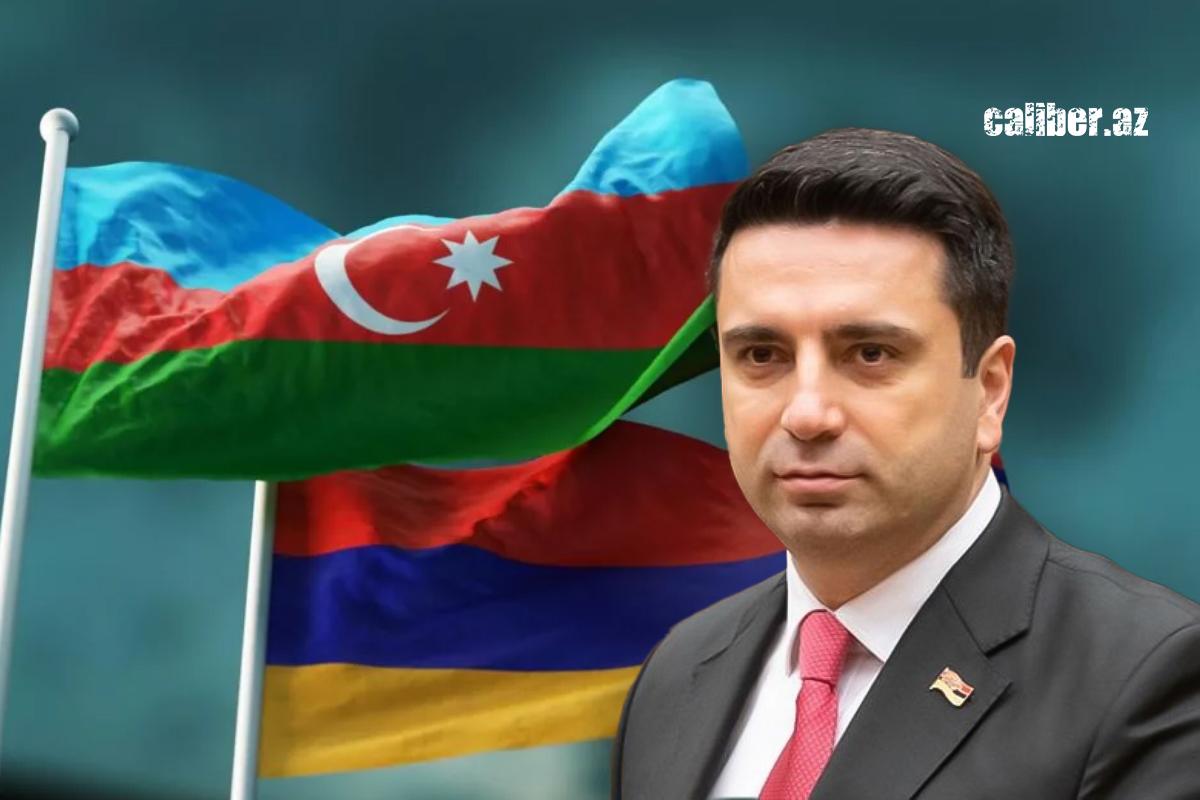Armenia’s hypocritical peace posturing Azerbaijan stays resolute
Ahead of the COP29 summit in Baku, the Armenian government is demonstrating hypocritical policies, claiming that Karabakh belongs to Azerbaijan while accusing certain third countries of being uninterested in Armenian-Azerbaijani reconciliation. Recently, the Speaker of the Armenian Parliament, Alen Simonian, stated in an interview with Radio Azatutyun that Azerbaijan conducted operations in Karabakh based on UN resolutions.
"When the Second Karabakh War started [in 2020] we were very upset because the world did not respond to that war the way we wanted. The reason [for that response] was also the lack of legitimacy, the lack of legitimacy on our side. Azerbaijan carried out an operation in Karabakh behind which it had at least three or four UN [Security Council] resolutions," admitted the Armenian speaker, noting that countries hostile to both Armenia and Azerbaijan want peace negotiations to reach a dead end.
"We must not allow the peace process (between Yerevan and Baku) to reach a dead end. This is precisely what the countries hostile to Armenia, and perhaps even Azerbaijan, want," said Simonyan.
Against the backdrop of Yerevan's pro-Western aspirations, one can conclude that the "third country" uninterested in Armenian-Azerbaijani reconciliation is Russia, with which Armenia currently has rather strained relations. In light of Yerevan's loud statements, another fact stands out. Speaking at the National Assembly, the Armenian speaker unequivocally stated that Karabakh was and remains an internationally recognized territory of Azerbaijan. Notably, he made this statement from the parliamentary podium in response to remarks from opposition member Gegham Manukyan following the interview with Azatutyun.
Manukyan posed the question: "Where did you get the idea that Azerbaijan had the right to attack Karabakh and that UN resolutions allowed this?" In response, Simonyan emphasized, "The fact remains: this territory was and remains internationally recognized territory of Azerbaijan."

Undoubtedly, Simonyan's acknowledgement of Karabakh as a territory of Azerbaijan is a positive fact. However, Armenia should recognize this not only in words but also in practice. Specifically, it needs to amend its constitution and thereby renounce its territorial claims against Azerbaijan. This is the main condition for Baku to sign a peace agreement with Yerevan. However, the Armenian side is currently limited to making loud statements. Apparently, they hope that Baku will believe them and agree to a truncated peace agreement, which Yerevan is undoubtedly aiming for, hoping for a future revanche.
However, the Armenian side is gravely mistaken in hoping to achieve a treaty before the upcoming COP29 conference without fulfilling Baku's requirements. Azerbaijan has repeatedly stated that a peace treaty will be signed only after the territorial claims are removed from Armenia's constitution. This means that Yerevan's attempts to outsmart Baku are doomed to failure. Moreover, behind Yerevan's loud statements lie militaristic plans from certain Western countries that support and arm Armenia.
To convince Baku of its sincere desire for peace, Pashinyan's government must organize a referendum on constitutional revision as soon as possible, ratify the results of this referendum in parliament, and definitively renounce its territorial claims against Azerbaijan. There are no other options for Yerevan, nor will there be.








